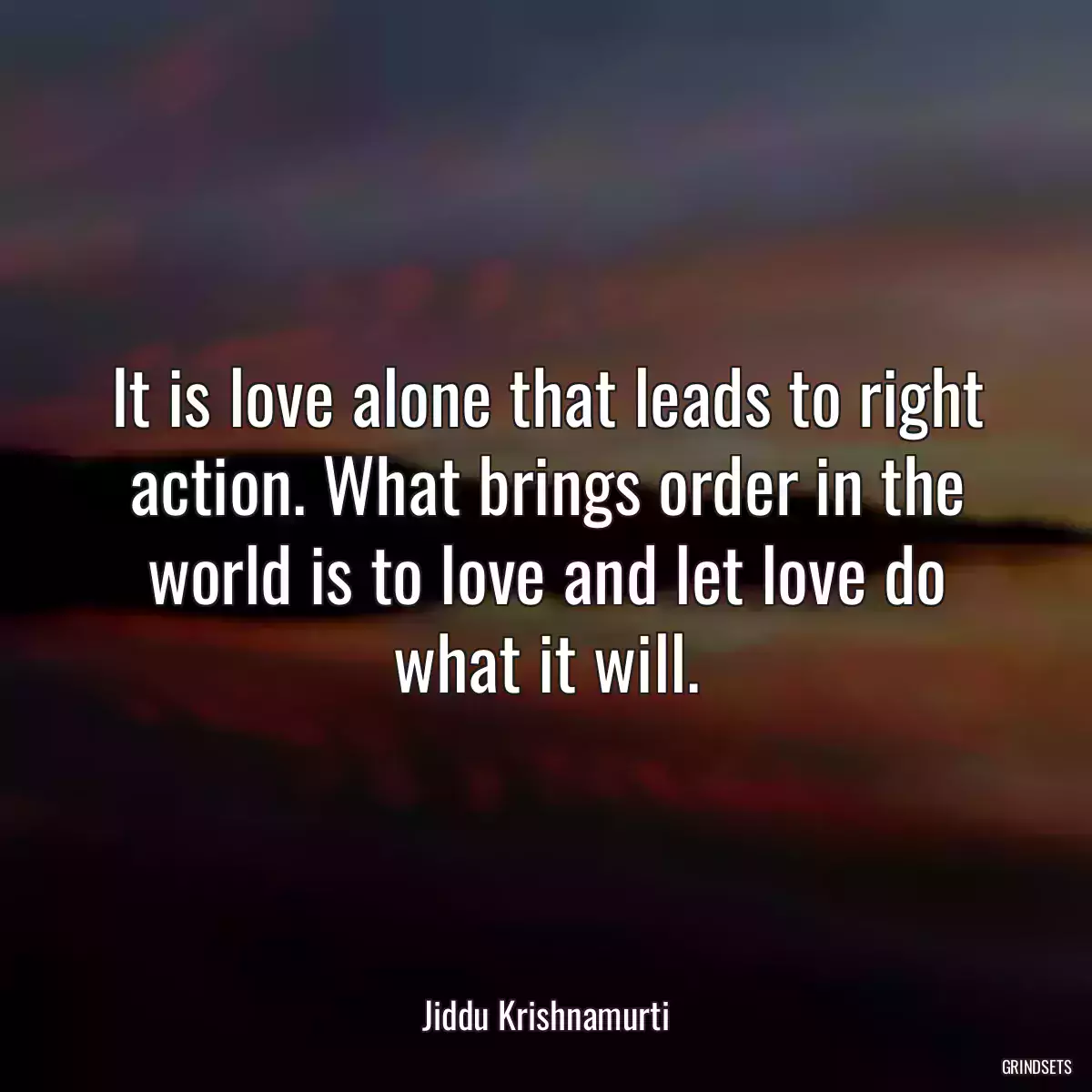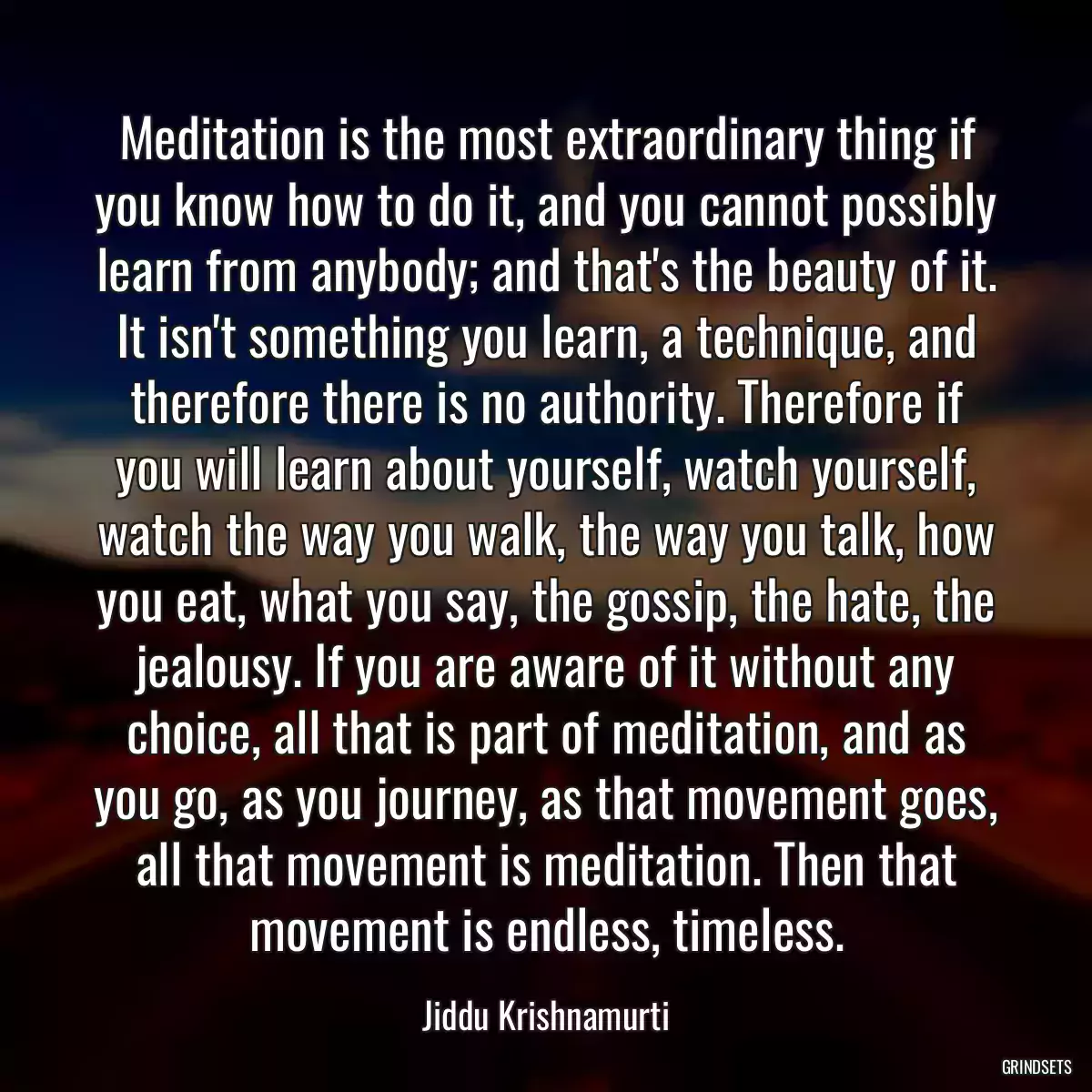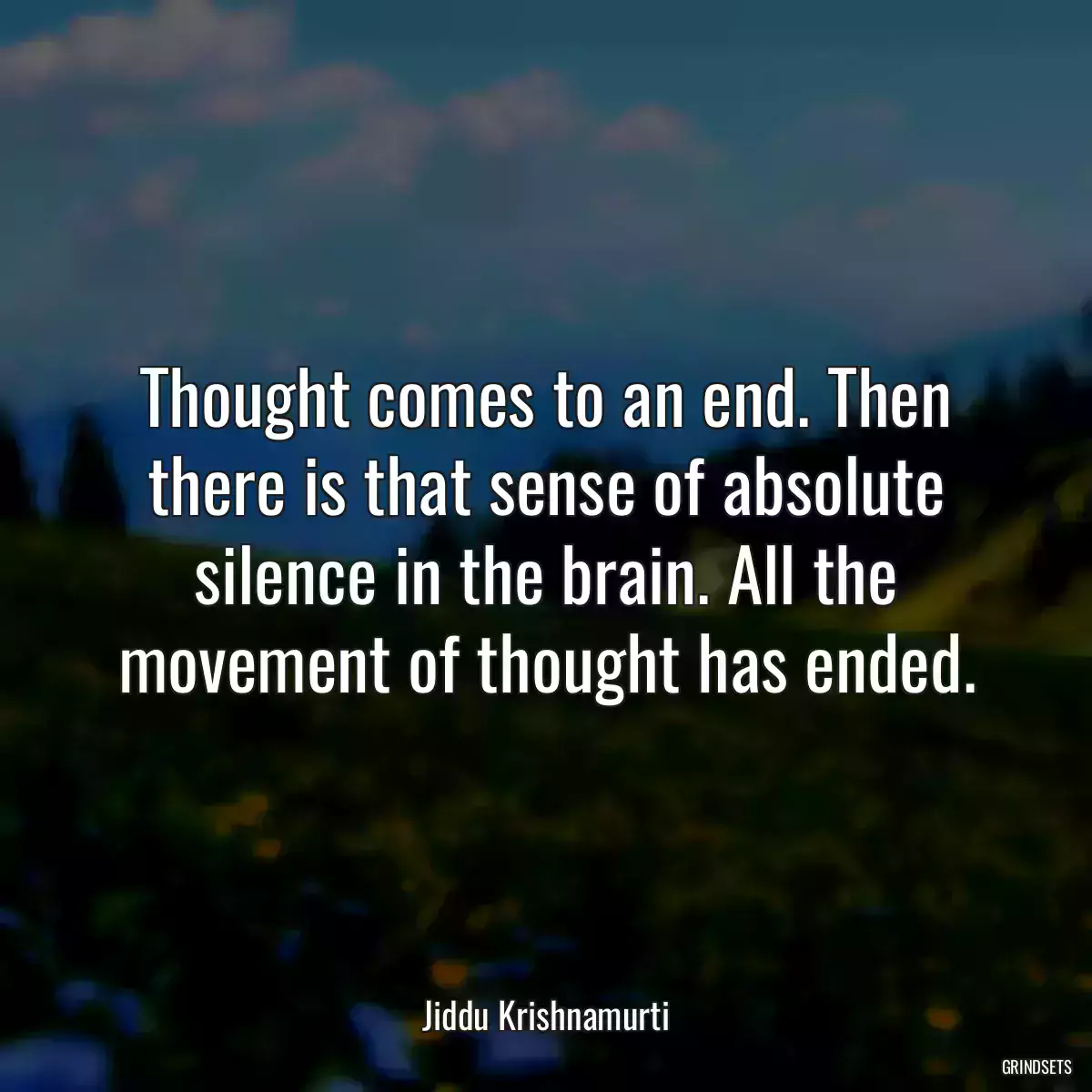
Quotes Jiddu Krishnamurti
Find dozens of Jiddu Krishnamurti with images to copy and share.

We carry about us the burden of what thousands of people have said and the memories of all our misfortunes. To abandon all that is to be alone, and the mind that is alone is not only innocent but young -- not in time or age, but young, innocent, alive at whatever age -- and only such a mind can see that which is truth and that which is not measurable by words.
The following of authority is the denial of intelligence. [It] may help us temporarily to cover up our difficulties and problems; but to avoid a problem is only to intensify it, and in the process, self-knowledge and freedom are abandoned.
You can be creative only when there is abandonment-which means, really, there is no sense of compulsion, no fear of not being, of not gaining, of not arriving. Then there is great austerity, simplicity, and with it there is love.
You may also like
What sex gives you momentarily is the total abandonment of yourself, then you are back again with your turmoil, so you want a repetition over and over again of that state in which there is no worry, no problem, no self.
If we could, and we must, establish a deep long abiding relationship with nature, with the actual trees, the bushes, the flowers, the grass and the fast moving clouds, then we would never slaughter another human being for any reason whatsoever.
The ability to observe without evaluating is the highest form of intelligence.
You may be perfect in playing the piano, and not be creative; you may play the piano most brilliantly, and not be a musician. You may be able to handle color, to put paint on canvas most cleverly, and not be a creative painter. You may create a face, an image out of a stone, because you have learned the technique, and not be a master creator. Creation comes first, not technique.
No book can teach you about yourself, no psychologist, none of the professors or philosophers. What they can teach you is what they think you are or what they think you should be.

Meditation is the most extraordinary thing if you know how to do it, and you cannot possibly learn from anybody; and that's the beauty of it. It isn't something you learn, a technique, and therefore there is no authority. Therefore if you will learn about yourself, watch yourself, watch the way you walk, the way you talk, how you eat, what you say, the gossip, the hate, the jealousy. If you are aware of it without any choice, all that is part of meditation, and as you go, as you journey, as that movement goes, all that movement is meditation. Then that movement is endless, timeless.
So you have to be your own teacher and your own disciple, and there is no teacher outside, no saviour, no master; you yourself have to change, and therefore you have to learn to observe, to know yourself. This learning about yourself is a fascinating and joyous business.
Knowledge about yourself binds, weighs, ties you down; there is no freedom to move, and you act and move within the limits of thatknowledge. Learning about yourself is never the same as accumulating knowledge about yourself. Learning is active present and knowledge is the past; if you are learning to accumulate, it ceases to be learning; knowledge is static, more can be added to it or taken away from it, but learning is active, nothing can be added or taken away from it for there is no accumulation at any time.
Freedom comes with self-knowledge, when the mind goes above and beyond the hindrances it has created for itself.
Meditation, then, is a state of mind in which the 'me' is absent. And therefore that very absence brings order.
It is astonishingly beautiful and interesting, how thought is absent when you have an insight. Thought cannot have an insight.
Love is a state of being, and in that state, the 'me', with its identifications, anxieties, and possessions is absent. Love cannot be, as long as the activities of the self, of the 'me', whether conscious or unconscious, continue to exist.
The fact is there is nothing that you can trust; and that is a terrible fact, whether you like it or not. Psychologically there is nothing in the world, that you can put your faith, your trust, or your belief in. Neither your gods, nor your science can save you, can bring you psychological certainty; and you have to accept that you can trust in absolutely nothing.
To be absolutely nothing is to be beyond measure.
You may also like

Only in Relationship can you know yourself, not in abstraction and certainly not in isolation. The movement of behavior is the sure guide to yourself. It's the mirror of your consciousness; this mirror will reveal its content, the images, the attachments, the fears, the loneliness, the joy and sorrow. Poverty lies in running away from this, either in its sublimations or its identities.